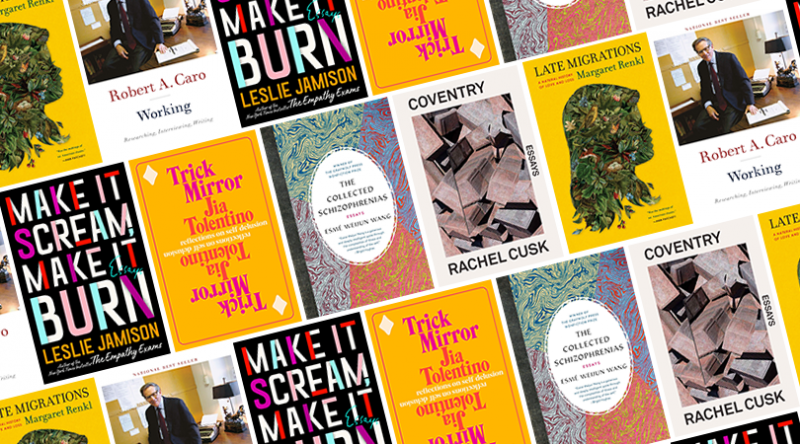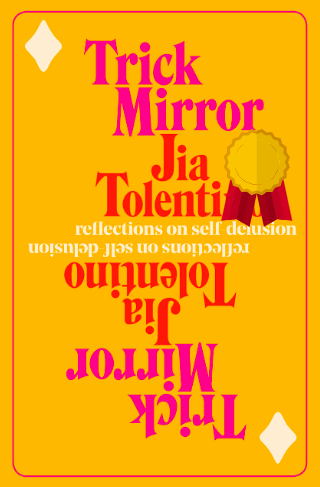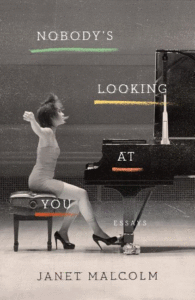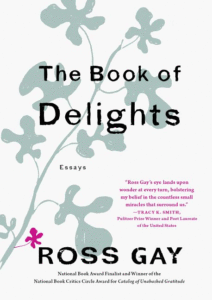
We’ve come to the end of another year in reading, folks, and as stewards of this venerable repository of literary criticism, it is once again our sacred duty to dust off the abacuses (abaci?) and tabulate the best reviewed books of past twelve months.
Yes, using reviews drawn from more than 150 publications, over the next two weeks we’ll be revealing the most critically-acclaimed books of 2019, in the categories of (deep breath): Memoir & Biography, Poetry, Sci-Fi & Fantasy, Essay Collections, Short Story Collections, Graphic Literature, Literature in Translation, Mystery & Crime, General Fiction, and General Nonfiction.
Today’s installment: Essay Collections.

1. Trick Mirror: Reflections on Self-Delusion by Jia Tolentino
19 Rave • 16 Positive
“..[a] phenomenal essay collection … a collection that feels somehow riskier than [Tolentino’s] usual output, unburdened by the demands and constraints of a big, mainstream publication … Tolentino finds…little truths in just about every corner of American cultural life. Her best pieces read like viral Twitter threads written by the Frankfurt School, seamlessly blending cynical humor with academic rigor … If you’re expecting feminist praxis, or ways of repairing the many broken and flawed systems being critiqued in Trick Mirror, you won’t find much of either here. But there’s an undeniable catharsis in seeing such a great writer lucidly communicate the conditions of our most absurd forms of misery.”
–Vincent Acovino (NPR)
2. The Collected Schizophrenias by Esmé Weijun Wang
15 Rave • 9 Positive • 1 Mixed
“… unnervingly excellent … [Wang’s] essays are all varied lenses on what it is to be one kind of human, to be schizoaffective, to be her. As a whole, The Collected Schizophrenias provides a new and welcome map for the severe landscapes of schizoaffective disorder, of cerebral disease, diagnosis, recovery, and relapse, of the many human mysteries of the schizophrenias. The essays are resoundingly intelligent, often unexpectedly funny, questioning, fearless and peerless, as Wang makes for brilliant company on 13 difficult walks through largely uncharted territory.”
–Scott Cheshire (The Los Angeles Times)
3. Working by Robert A. Caro
8 Rave • 18 Positive • 1 Mixed
“…indispensable … Through its mix of previously published personal essays, cohesively edited together with new reflections and insights, Working becomes an invaluable how-to for aspiring nonfiction writers and journalists. It’s an intimate glimpse into the anxieties and painstaking sacrifices that go into the ridiculously in-depth reporting Caro has made his name on … The research is the backbone of his books, as it would be for any historian. But the key to Caro’s success rests in his ability to bring alive the people who witnessed or were transformed by the political power he’s trying to describe … That’s the ultimate charm of Working: it’s a reminder that we should care less about whether or not the work gets finished, and more for everything Caro has given us so far.”
–Quinn Myers (The Chicago Review of Books)
4. Coventry by Rachel Cusk
11 Rave • 10 Positive • 4 Mixed
“…a sharp new miscellany … Cusk’s first collection of essays. It also contains some book reviews and introductions, but her heart does not seem in them. She mediates between her mind and the external world with a precision and agility that mostly goes missing when she mediates between texts … [the essays] are first-rate, marked by candor and seriousness, and they’re familiar … Her writing about parenting is discerning and granular … Cusk’s essays are subtle; they do not announce their intentions through a megaphone. She feels her way into her topics and she will not be hurried. You read her for her riddling questions, not whatever answers might pop out at the end. She is often ambivalent, but never neutral in the self-protective modern manner. She is a poet of split feelings. Her inquisitive intelligence is the rebar that, inside the concrete, holds the edifice upright.”
–Dwight Garner (The New York Times)
5. Make it Scream Make it Burn by Leslie Jamison
10 Rave • 8 Positive • 5 Mixed
“The organization of the collection—the three sections, the order of the essays, the way each essay subtly or overtly connects to others—contributes to a satisfying unity that feels organic, no matter how fully intended … [Jamison’s] empathy is not something she puts on in order to wheedle her way into people’s confidence, and it is precisely the insights that she brings from her own experience that make her writing so thoroughly humane. Certainly, it is what draws me to her work … This essay collection neither screams nor burns. I’ve already read it twice, and I know that I will read it again when I need an infusion of that signature Jamison observant, open-minded, empathetic humanity … Jamison interleaves her own narrative with others, recounting milestone life events while amplifying voices that aren’t loud enough (and in one case, a whale). Perhaps all writing is an innate, primal scream, and Jamison—astutely—knows and embodies this with compassion and vigour.”
–Sinead Gleeson (The Irish Times)
6. Late Migrations: A Natural History of Love and Loss by Margaret Renkl
15 Rave • 1 Positive
“Like nothing else in the newspaper, [these essays] burst with awareness of the things of nature, awareness that our lives are led in that midst, permeated with and part of the natural world. All is written with an open, joyful, yet steady voice of wonder … [Renkl] may not know the science (although she knows the names of birds and plants with precision) but she knows the glory. That’s what poets do: They enact the impact of the real on our open minds and call on us to share the wonder … The book, although it covers many emotions, owns the hush of high summer … Margaret Renkl is the most sensible of spiritual writers. She’s not going to fool herself about the world. Late Migrations sings, nevertheless, the best praise we can offer, praise that need not be pinned down to any single doctrine or teaching. She finds the whole world holy and is moved to praise at every turn. That’s enough to warm a lifetime of summers.”
–John Timpane (The Philadelphia Inquirer)
7. Everything in Its Place: First Loves and Last Tales by Oliver Sacks
11 Rave • 4 Positive
“Oliver Sacks, however, has a way of writing about his areas of lifelong interest—they include libraries, neurological disorders, botany and the history of science—that never fails to captivate me even if they are far from my own passions. Sacks possesses the crucial knack of neither dumbing down nor writing over the head of a lay reader … Much science writing for a general readership strains to explain specialized topics. For Sacks it’s more about enthusing his way to promote appreciation (and greater understanding). We get excited about, say, ferns because he is so into their beauty and resilience … If you love fascinating tidbits, this book of uncollected or previously unpublished essays is for you … neatly summarizes the extraordinary career of a brilliant translator between far-apart worlds.”
–Claude Peck (The Star Tribune)

8. Nobody’s Looking at You by Janet Malcolm
7 Rave • 8 Positive • 4 Mixed
“Malcolm is not the nicest writer, but she is far from the least nice … Readers thrill or recoil not at what she says, but at the certain feeling that she could say much worse. Restraint is her drama. Perversity is her mood. Beauty and justice have in common a symmetry which the perverse among us seek to upset. Malcolm’s most beautiful writing is about childhood … In Malcolm’s latest essays, Malcolm emerges unexpectedly as someone to call (in the millennial idiom, facetious but sweet) ‘Mom.’ More tender, her observations a little off … A 2016 essay on translations of Anna Karenina is the greatest source of pleasure in this collection; being both a typically gloves-off examination of an ill-fated subject—the husband-and-wife team responsible for making a number of Russian masterpieces too easy to read—and a playful denuding of the point.”
–Sarah Nicole Prickett (Bookforum)
9. Essays: One by Lydia Davis
7 Rave • 7 Positive • 1 Mixed
“The book’s raison d’etre is not to preserve these individual pieces—though some of what’s in here is quite worth saving—it’s to elevate Davis to the office of a Great American … well, again, it’s hard to know what word to use. Let’s just agree that Davis, now 72, is an elder stateswoman of American letters … when you read [Davis] at length—these essays run to more than 500 pages—you realize just how chewy and complicated she is … It’s a pleasant surprise that Lydia Davis is so engaging on the subject of Lydia Davis. Few writers have anything useful to add to contextualize their art. Then again, few writers make the kind of work that really needs some explication…It’s refreshing to hear her explain herself…Or, most of the time anyway … Anyone weighing going into debt for an MFA should know that they can instead buy this book … She’s so deeply cerebral it’s perhaps counterintuitive that Davis is a companionable presence. She’s erudite, with catholic interests, and earnest but not humorless. This is the kind of book you could read alone in a restaurant and feel you’re lost in a stimulating conversation … As a critic, she is perceptive, yes, but also truly engaged … we can’t all be Lydia Davis, but thank god we have her.”
–Ruman Alaam (The New Republic)

10. The Book of Delights by Ross Gay
5 Rave • 10 Positive • 1 Pan
“To catalogue delights and to delight in them at some length, as Gay does, shines a light on otherwise private, intimate moments, and the book that collects this catalogue has the feel of a devotional poem. Because Gay is a poet, it’s hardly a stretch to read his prose as versifying, and an attentive reader will notice moments of overlap between the concerns in The Book of Delightsand Gay’s poetry … it’s not simply that Gay has dedicated this book to a single idea—delight in its many forms—but that in its repetition, in his act of finding delight in rice candy, in music from a passing car, in babies on planes, and in a backyard log pile, it becomes an enthusiastic exercise in observance … The shock of Gay’s writing—and I wonder if I would have fully understood this if I hadn’t heard the work read aloud by Gay himself—is his seamless shift from breezy, affable observation to sober (and admittedly still affable) profundity … I want to say that Gay’s writing is magical because that’s the way it feels when I read it. But the essays didn’t come into being with a flick of the wrist, a wave of the wand. Calling it magic undercuts Gay’s craft, the effort that goes into producing literature that feels as fluent and familiar as a chat with a close friend. His voice has integrity, in both senses of the word: a completeness or consistency, true to itself; and an honesty and compassion…so frankly subjective that it produces an incorruptible vision.”
–Nicole Rudick (The New York Review of Books)
*
Our System: RAVE = 5 points • POSITIVE = 3 points • MIXED = 1 point • PAN = -5 points
If you buy books linked on our site, Lit Hub may earn a commission from Bookshop.org, whose fees support independent bookstores.

